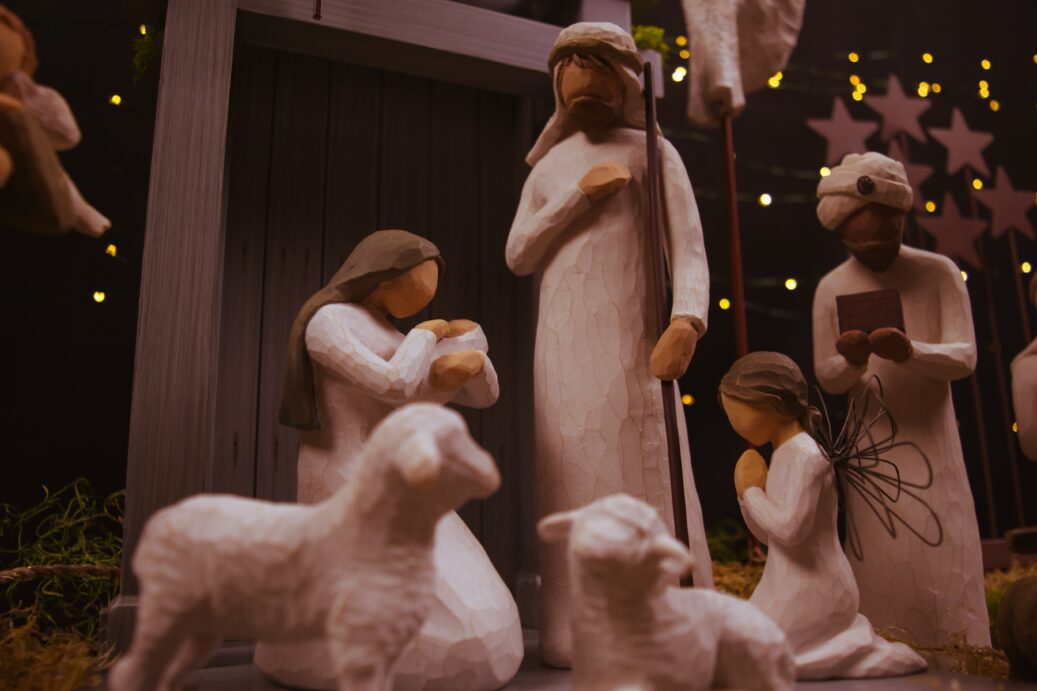The man tapped his finger thoughtfully on the tabletop as he looked at his reflection. He still couldn’t believe it was his face he was looking at. He turned from side to side to confirm that what he was seeing was actually true.
Much had changed.
As head of security for one of the world’s most powerful people, he had made sacrifices. He had been willing to do almost anything to ensure the safety of the man he protected. He had determined early on in his career that he would do whatever it took to get the job done. And he had been successful. He had skyrocketed above his peers and had established himself as a man to be reckoned with.
By his ingenuity, courage, and strength, he had secured elite protection for his patron and advanced the man’s influence.
Because of his proficiency, he had acquired for himself honour, position, fame, and not a small fortune.
But there was a problem. Though his name (Naaman) meant “pleasantness,” his body told a different story. He was covered with a very unpleasant skin disease, and nothing in the 9th century B.C. could cure him. Eventually, the disease would kill him.
But something drastic had occurred, something that would change not only his outward appearance but the depths of his heart as well.
He had heard of a prophet in neighbouring Israel that could heal people. So, his boss, the King of Aram, sent him to Israel with enough money to make the recipient a millionaire four times over.
Naaman was used to being treated with utmost respect and fear, so when he arrived in Israel with his magnificent payment, he was sure he would be received in the usual way.
However, his expectations were dashed.
He came to the house of the elderly prophet anticipating the predictable fawning and awe that people regarded him with. Instead, he got the prophet’s servant; the old man didn’t even bother to show up.
And then he was told by that servant, who probably had no idea who Naaman was, that he was to go and bathe himself in the Jordan River seven times. Once that was done, he would be healed of his skin disease.
Naaman was disgusted. He had been affronted and humiliated. The dirty Jordan waters were pathetic compared to the beautiful rivers back in Damascus. There was no way someone of his stature would stoop that low to bathe in that river.
Furious and embarrassed that a man of his stature had been personally ignored by the prophet and asked to do something so disgusting, Naaman left.
However, some of his subordinates reminded him of his commitment to do whatever it took to get the job done. If the prophet had asked him to do some challenging feat, he would have done it, no questions asked. In this case, the prophet was just asking him to take a little step of faith that showed trust in the God of Israel.
Who knows how long he stood at the Jordan’s edge, watching as the current flowed by? What would it do to his reputation if he soaked himself in the Israeli waters only to be left the way he was when he went in? He would be the laughingstock of everyone.
Finally, he made up his mind. In faith and humility, he stepped into the water and plunged beneath its surface—once, twice, three times and more. On the seventh time, as he came up out of the water, the awe he felt in his heart matched the look on his subordinates’ faces. He was completely clean. He had trusted in the God of Israel and had experienced His faithfulness.
All he knew was that he had once been sick, but now he was well (2 Kings 5:1-14).
Naaman had no idea that his life would be a representation, a foreshadowing of the one true Healer-God’s journey that would take place less than a thousand years later.
Just as Naaman left his exalted position and home to come to a lowly, humble river, so, too, the God of the Universe would make a humbling downward journey.
The Scriptures testify:
Christ Jesus, being in very nature God, did not consider equality with God something to be grasped, but made Himself nothing, taking the very nature of a servant, being made in human likeness. And being found in the appearance of a man, He humbled Himself and became obedient to death, even death on a cross. (Philippians 2:6-8)
Christ Jesus came to earth and was born in a humble manger. He deserved to be born in a palace. He deserved honour and awe and worship. He deserved parades and accolades. He got none of that. His journey from greatness to humility made Naaman’s journey pale in comparison.
But while Naaman was willing to make that journey for himself and his own reward, Jesus made that journey for all of humanity, for their reward.
On the night of Jesus’ birth, the angels filled the sky and said:
“Do not be afraid. I bring you good news that will cause great joy for all the people. Today in the town of David a Savior has been born to you; he is the Messiah, the Lord. This will be a sign to you: You will find a baby wrapped in cloths and lying in a manger.”
“Glory to God in the highest heaven, and on earth peace to those on whom his favor rests.” (Luke 2:10-12, 14)
It was Jesus’ unimaginable humility that secured for us all eternal life. Our rotting souls could be washed clean. We could be as white as snow.
The Word became flesh and made His dwelling among us. We have seen His glory, the glory of the one and only Son, who came from the Father, full of grace and truth. (John 1:14)
The Nativity story is the beautiful and breathtaking account of the God who lowered Himself so that we could be raised up.
About


